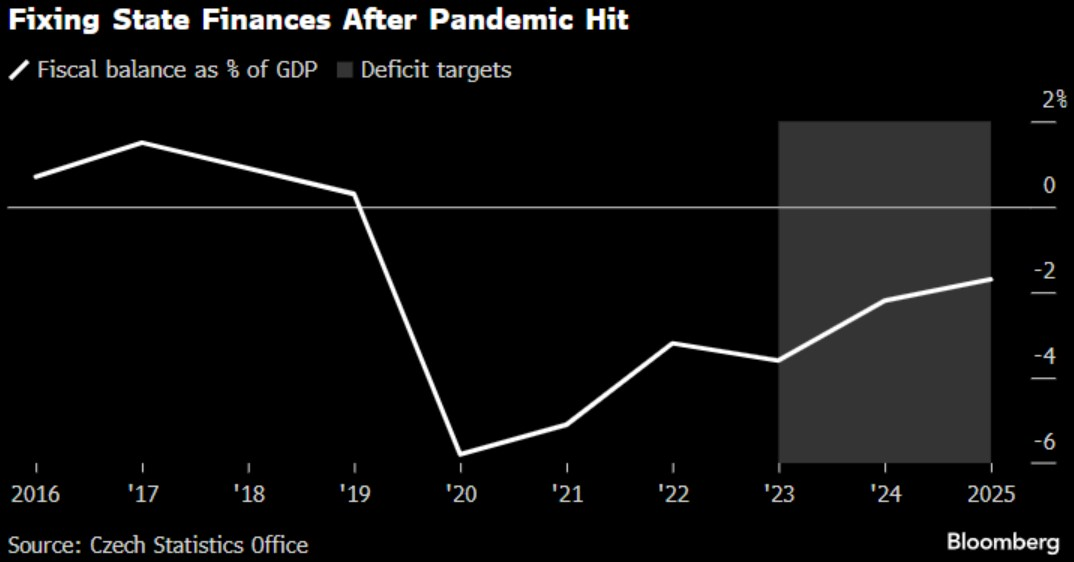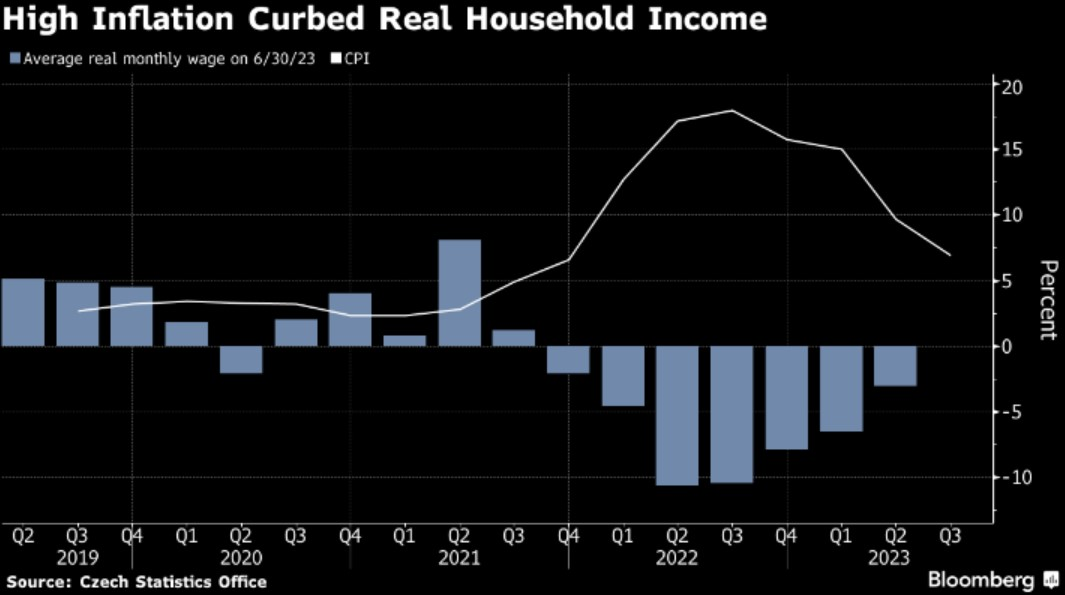Pain of Fiscal Austerity Is Worth It, Czech Finance Chief Says
Zdroj: Bloomberg, autoři: Kryštof Chamonikolas, Peter Laca, datum: 9. 11. 2023
The Czech Republic’s finance chief is betting fiscal pain now will pay political dividends in the future and stave off the rise of populist forces.
The government in Prague wants to fulfill a pledge to reverse pandemic-era debt growth and bring budget policy back under control, Finance Minister Zbynek Stanjura said in an interview. But he’s aware of the backlash over the 150 billion koruna ($6.5 billion) package of spending cuts and tax increases from unions and the opposition, which is gaining in polls.
“I’m convinced it was worth it,” Stanjura said in Prague. “While it’s unpopular today, I think we would have a much bigger reputational issue if we abandoned the effort, left things on their old trajectory, and failed to deliver on this key election promise.”
The two-year-old government’s mission for fiscal discipline was blown off course by the war in Ukraine, an influx of half a million war refugees and Europe’s energy crisis. Now that it’s returning to the campaign pledge, labor unions are threatening protests and the outcry is fueling the political forces of the former billionaire premier, Andrej Babis.
But Stanjura, 59, a deputy head of the center-right Civic Democrats, said the benefits of fiscal prudence would include inflation relief with lower state borrowing, pushing price increases toward the 2% target next year and ending a period of declining real wages. The key public-finance gap is expected to halve by 2025 from a projected 3.6% of output this year.
The growth impact for the Czech Republic’s $300 billion economy will also be softer than unions have warned, Stanjura said, pointing to a ministry estimate that the measures will shave up to half a percentage point off potential expansion next year. The central bank projects a hit of about twice that much.
“Our economy has shown greater resilience than we thought,” the finance minister said. His longer-term ambition is a balanced budget, he said.
But the political costs are apparent. Babis’s ANO party, a populist force that went on a spending spree in the second half of the ex-premier’s 2017-2021 tenure, has 33.5% support, according to a poll by Kantar CZ for public television. That’s about as much as the combined backing for all five ruling parties, while the anti-immigrant SPD, which seeks to take the Czechs out of the European Union and NATO, would get 9.5%.
“We are obviously aware of the risk of a political backlash if the opposition were to win the next elections and reverse our policies,” said Stanjura, who said sustainable finances were necessary for spending on education, security and welfare. “Our job is to prevent that from happening.”
The finance chief spoke a day before the Czech upper house of parliament on Wednesday approved the legislation, sending it to President Petr Pavel, who may approve it or return it to lawmakers for another vote.
Critics from the opposition and the unions say the plan will hit low-income households and public-sector employees. One of the measures reintroduces a pre-pandemic fee that helps subsidize renewable energy, which may hit electricity bills.
If not the opposition, the consolidation effort has satisfied the market, with Czech bonds outperforming most European peers this year. The yield premium investors demand to hold the country’s 10-year notes instead of German bunds has shrunk to about 190 basis points from a peak of 422 basis points mid-last year.
For Stanjura, the goal is to bring back the public mindset favoring budget prudence, which has in the past made the Czechs one of the most debt-averse nations in Europe.
“Cautious fiscal attitudes are part of the DNA of not only us politicians but of our entire society,” Stanjura said. “In the past four years, we have slightly suppressed these long-term instincts, and now we’re returning to them.”


